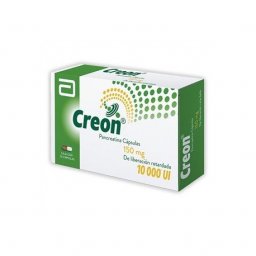Gastrointestinal & Digestion (14 Offers)
Digestive issues are a common problem for many people. Our lifestyle and exterior factors significantly impact our health, so to handle stomach issues, we need medications for gastrointestinal disorders. Medicine for gi issues includes antibiotics, gastrointestinal pain relief pills, and other drugs.
What are Gastrointestinal Diseases?
Gastrointestinal disease is a disorder in some organs’ work. To see more visibly how it works, let’s look at the digestive system:
- mouth – to grind the food and push it down to the esophagus;
- salivary glands – produce the saliva to better swallow the food particles;
- esophagus – delivers the food to the stomach;
- stomach – produces digestive juice to decompose food particles;
- liver – works as a filter for unfavorable matters;
- gallbladder – helps decompose fats;
- pancreas – produces hormones and enzymes to digest sugars, fats, and starches;
- small intestine – here the main part of digestion takes place;
- large intestine – serves for the final stage of digestion;
- rectum – stores feces until there is enough volume for defecation;
- anus – removes solid waste products from your organism.
As the work of organs is interrelated, the disorders have a complex impact too. And if do not use medicine for gastrointestinal diseases to eliminate them quickly, they cause other troubles.
Types of Digestive Disorders
Doctors prescribe medicine for digestion problems depending on what digestive disorders we talk about. The first thing to find out is the type of disease. There are two of them: functional and structural. The problem is functional if an organism has no abnormal structural phenomenon – if the trouble is related to the organ’s functioning only. Structural disorders are caused by mentioned abnormalities.
To give an example, functional disorders can be caused by stress or other lifestyle peculiarities (heartburn, diarrhea, etc.), while structural are more dangerous and usually require surgery involvement.
The Most Common Gastrointestinal Diseases
The most frequent GI diseases that bother patients include:
- irritable bowel syndrome (IBS) – is connected with too slow or quick peristalsis, sensitive nerves in your intestine, or genetics;
- colitis – is characterized by acute pain which can be long-term or self-limited;
- diarrhea – can be a consequence of your strong emotions or diet or a symptom of other GI conditions;
- bowel control problems (fecal incontinence) – inability to control feces to go out from the rectum.;
- gas – a meteorism caused by diverse GI problems;
- lactose Intolerance – inability to digest lactose;
- celiac disease – is characterized by the immune system attacking your organism when you consume gluten products;
The medications for digestive problems listed above depend on the exact cause. Gastrointestinal medications work better with proper diet and lifestyle changes.
Classes of Digestive Medications
Gastrointestinal disease medicines are distinguished by various criteria. Generally, gastrointestinal drugs are classified into:
- over-the-counter medication for gastrointestinal disease or prescribed ones;
- conventional and non-traditional digestive meds;
- simple small molecule drugs for gastrointestinal disorders;
- gastrointestinal drugs based on complex macromolecules;
- recombinant proteins for digestive disorders treatment.
Classifications also divide gastrointestinal medications used for treatment by the principle of action.
Types of Gastrointestinal Medications on PillPal
On PillPal online pharmacy, you can find the following types of gastrointestinal meds:
- digestive enzymes;
- reducers of stomach acid;
- anti-nausea gi drugs;
- gallstone dissolvers;
- anti-inflammatory gastrointestinal pills;
- pills for digestive problems with gastroesophageal reflux disease.
You can also find antibiotics and pain relief tablets for more complex digestive problems treatment.
Ordering medicine for gastrointestinal problems in PillPal online pharmacy is comfortable in the US or any other country. You will find a solution for most problems – quickly and without hassle. But don’t forget to consult the doctor first, as only a specialist can define what treatment you need.

















